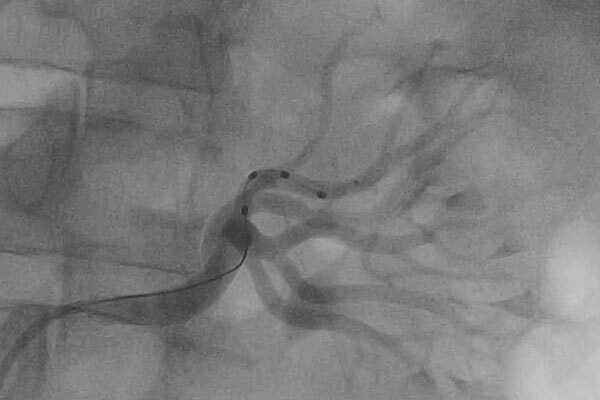Procedures
Renal Artery Denervation (RDN)
Renal Artery Denervation (RDN) is a cutting-edge medical procedure offered by Auburn Cardiology Centre. This innovative treatment option is designed to help patients who suffer from high blood pressure, also known as hypertension, by targeting the nerves that are responsible for regulating blood pressure.

Call for Appointment
(02) 9646 4044
Procedures Expertise
Coronary Angiography & Stenting
Electrophysiology Study and Catheter Ablation
Everything you need to know about
Renal Artery Denervation
What is Renal Artery Denervation (RDN) ?
RDN is a minimally invasive procedure that uses radiofrequency energy to disrupt the nerves that regulate blood pressure in the renal artery. This procedure is designed to help patients with hypertension who have not responded well or are intolerant to standard anti-hypertensive medications.
How is RDN performed?
RDN is performed using a small catheter that is inserted through a small incision in the groin and guided up to the renal artery. A small electrode at the tip of the catheter delivers radiofrequency energy to the renal artery, disrupting the sympathetic nerves that control blood pressure.
Is RDN a painful procedure?
RDN is performed under anaesthesia, and most patients report some discomfort during the procedure. Some patients may experience mild discomfort at the insertion site following the procedure, but this can typically be managed with over-the-counter pain medications.
How long does the RDN procedure take?
RDN typically takes about 1-2 hours to complete, depending on the complexity of the patient’s case.
How effective is RDN in treating hypertension?
RDN procedures have been shown to be effective in reducing blood pressure levels in patients with hypertension who have not responded well to traditional medication management. However, the effectiveness of the procedure may vary depending on the individual patient’s case.
What is the recovery time after the RDN procedure?
Patients can typically return home the same day as the procedure and resume normal activities within a few days. Patients should avoid strenuous physical activity and heavy lifting for a few days following the procedure.
Call for Appointment
(02) 9646 4044
Procedures Expertise
Coronary Angiography & Stenting
Electrophysiology Study and Catheter Ablation
Structural Heart Intervention Procedures
Transcatheter Aortic Valve Implantation (TAVI) | Balloon Mitral Valvuloplasty | PFO Closure | Left Atrial Appendage Closure (LAAC) | Paravalvular Leak Closure (PVL)
Book an Appointment
Call for appointment/GP referral
(02) 9646 4044
